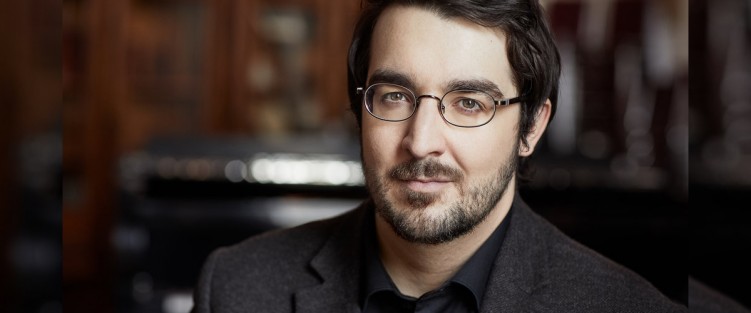 WN: In addition to your concert on July 19 at this year’s Toronto Summer Music Festival, you have the honour of mentoring Fellows of the TSM Academy. Why is mentoring so crucial?
WN: In addition to your concert on July 19 at this year’s Toronto Summer Music Festival, you have the honour of mentoring Fellows of the TSM Academy. Why is mentoring so crucial?
CR-H: In my student years, I attended many summer programs which I now realize were as important to my education as my university studies. Especially the chamber music programs, since they feel very close to the professional world: you have to very quickly get along with other players and be ready to give up some of your preconceived notions and be open to learn from others. Experience is something that demands to be shared and passed on, and I’m very lucky to have the opportunity to do that at the TSM Academy.
What is the most important thing a mentor can do? Please tell us about a memorable experience you had as a student with a mentor.
Inspiration. A great mentor, over a very brief period of time, can make you love the music you’re playing to a point where you don’t want to stop working until you’ve done justice to it. I’ve had many encounters like this, but most notably was getting working with Máté Szűcs in Denmark (at the Thy Chamber Music Festival) who was the Berlin Philharmonic principal viola for many years. He was extremely inspiring in his musicianship and in how he was able to communicate that love for the music.
What is the first piece of music you fell in love with? What musicians inspired you in your student days?
It’s hard to find a single piece, but I remember being obsessed with Chopin’s Four Ballades as a teenager, especially Krystian Zimerman’s recording of them. I remember not having a single clue in how he was able to make the piano sound like this and in how music can be so emotional and powerful. Later, I became obsessed with Radu Lupu’s recordings, all of them. To this day, his interpretations are the golden standard for me: everything he does is considered, impeccably balanced, yet completely in the moment and free as a bird. I also heard him live a few times and I always left the hall transformed. A truly magical artist.
I’m looking forward to hearing the Brahms First Piano Quartet with you and members of the Dover Quartet. Have you played with them before?
I have not, but I’ve heard them live a couple years ago with André Laplante in the Schumann Piano Quintet in Montréal. I was very moved and impressed by them and I really look forward to working with them.
How has your approach to Chopin’s Andante spianato et grande polonaise brillante evolved over the years?
It is actually a relatively new addition to my repertoire! However, the musical language of the young Chopin, which I’m used to playing quite a lot (the two Concertos, the Rondo Op.16, etc) is very much there in this piece too. It is especially inspired music, with very memorable themes and melodies everywhere, even in all the transitions.
Paul Ennis is the managing editor of The WholeNote.



